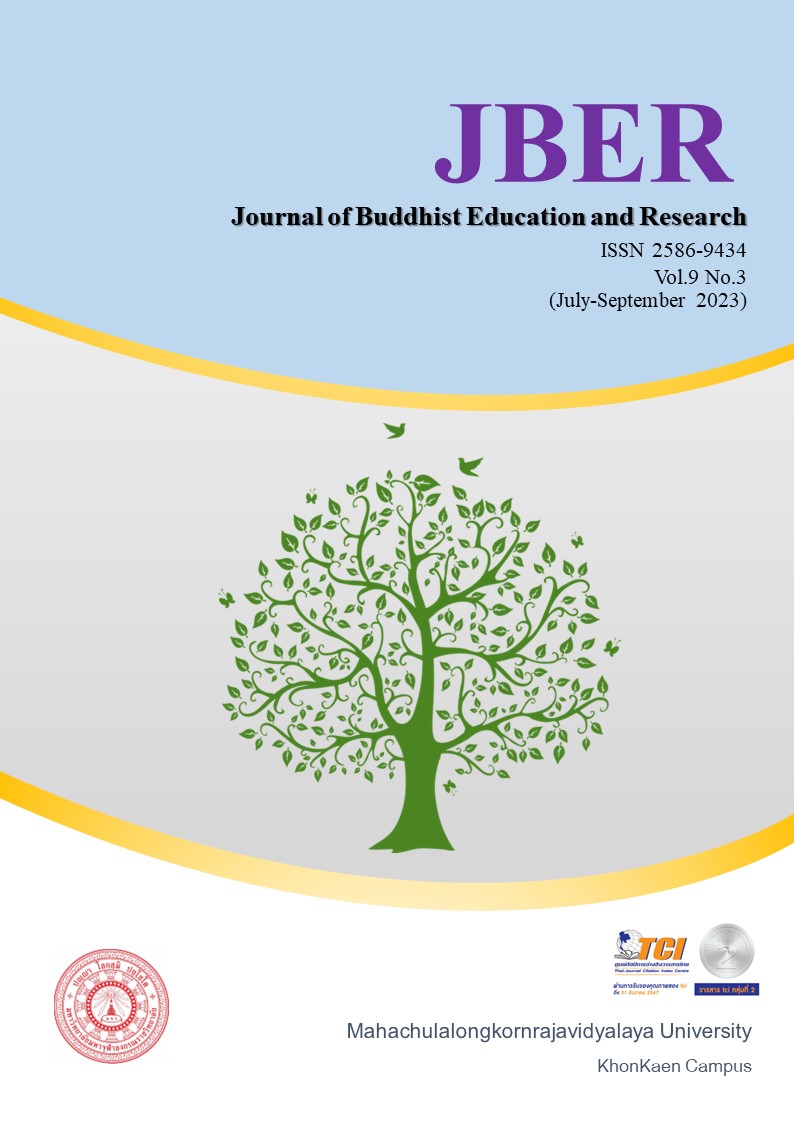THE IMPACT OF MINDFUL LEADERSHIP ON KNOWLEDGE WORKERS’ WORK MOTIVATION
Keywords:
Keywords: Knowledge workers; Work motivation; Mindful leadership; Organizational justice; Psychological contractAbstract
In the Internet era, digital office has become the mainstream, and many jobs require employees to have corresponding knowledge and skills. Knowledge workers account for an increasing proportion in enterprises, and how to manage knowledge workers has become one of the key concerns of enterprises.
This paper aimed to investigate the status of mindful leadership and characteristics of knowledge workers in China and propose a hypothesis that organizational justice and psychological contract might have a chain mediating effect on the mechanism of mindful leadership and knowledge workers' work motivation from the perspective of planned behavior theory. Data were collected using a questionnaire, and empirical analysis was conducted based on relevant literature on mindful leadership, sense of organizational justice, psychological contract and knowledge workers' work enthusiasm.
The result revealed that mindful leadership had positive impact on knowledge workers' sense of organizational justice and psychological contract and could improve knowledge workers' work enthusiasm. That is, the stronger the leader's mindful trait is, the stronger the knowledge workers' sense of organizational justice, psychological contract and work enthusiasm are. Through sample difference analysis, it was found that age and working years significantly affected knowledge workers' perception of mindful leadership and work initiative, and job position significantly affected knowledge workers' perception of mindful leadership, organizational justice, psychological contract, and work initiative.
References
Arendt, J. F. W., & Verdorfer, A. P. and Kugler, K. G. (2019). Mindfulness and Leadership:
Communication as a Behavioral Correlate of Leader Mindfulness and Its Effect on
Follower Satisfaction. frontiers in psychology, 10: 667.
Brown, K. W. & Ryan, R. M. (2003). The benefits of being present: Mindfulness and its role
in psychological well-being. Journal of Personality and Social Psychology, 84(4): 822-
Byrne, E. K. & Thatchenkery, T. (2019). Cultivating creative workplaces through
mindfulness. Journal of Organizational Change Management, 32(1):15-31.
Davidson, R. J. (2010). Empirical explorations of mindfulness: Conceptual and
methodological conundrums. Emotion, 10(1): 8-11.
Fred, L., Bruce, J. A., James, B. A. & Steven, M. N. (2007). Positive Psychological Capital:
Measurement and Relationship with Performance and Satisfaction. Personnel
Psychology, 60(3): 541-572
Journal of Buddhist Education and Research : JBER
ปีที่ 9 ฉบับที่ 3 กรกฎาคม-กันยายน 2566 [317] Vol.9 No.3 July-September 2023
Han, Y.L. (2010). Constructing meaning in the Chinese context: Middle managers' management awareness and its impact. Doctoral dissertation, Peking University.
Huang, K.H. (2016). Research on the influence mechanism of counterproductive behavior of knowledge employees based on equity perspective. Master's thesis, Wuhan University of Technology.
Liu, X.W. (2020). A review of the literature related to the impact of organizational equity perceptions on organizational effectiveness variables. Business News (34): 167-168.
Mu, X. (2014). The impact of psychological contract on the job performance of new generation knowledge workers: the moderating role of organizational socialization.
, Chongqing Technology and Business University.
Sha, Y.Y. (2021). A literature review on psychological contract, organizational commitment, and employee satisfaction among new generation employees. China Collective Economy (23): 74-77.
Shi, G.F. & Han, H.W. (2014). Analysis of the concept, classification and characteristics of the new generation of knowledge workers. Modern Business Industry (06): 81-82.
Shi, Y.R. (2019). A study on the influence of organizational equity on the counterproductive behavior of new generation employees after 90. Master's thesis, Inner Mongolia University.
Song, A.J. (2017). A study on the impact of organizational equity on teachers' engagement in higher education - the mediating role of reward satisfaction. Journal of Tianjin Normal University (Social Science Edition) (01): 54-58.
Xue, Q. (2017). A study on the mechanism of organizational fairness on the work involvement of "post-90s" employees. Master's thesis, Anhui University of Technology.
Yang, J., Ling, W. & Fang, L. L. (2006). (2006). A study of knowledge-based job classification based on perceptual analysis. Scientific Research (01): 98-105.
Yue, F.K. (2021). The impact of mindful leadership on team work reshaping. Master's thesis, Shanxi University of Finance and Economics.
Zhang, Y.J. (2012). A study on the mechanism of performance appraisal perception of fairness on counterproductive behavior. Doctoral dissertation, Huazhong University of Science and Technology.
Zhang, Z.D. (2017). A study on the relationship between new generation employees' sense of organizational fairness, willingness to share tacit knowledge and peripheral performance. Master's thesis, Xinjiang University of Finance and Economics.
Good, D. J., Lyddy, C. J., Glomb, T. M. , Bono, J. E. , Brown, K. W., Duffy, M. K. , Baer, R.
A. , Brewer, J. A. & Lazar, S. W. (2016). Contemplating Mindfulness at Work: An
Integrative Review. Journal of Management, 42(1): 114-142.
Master's thesis
Reb, J., Narayanan, J. & Chaturvedi, S. (2014). Leading Mindfully: Two Studies on the
Influence of Supervisor Trait Mindfulness on Employee Well-Being and Performance.
Mindfulness, 5(1): 36-45.
Reb, J., Chaturvedi, S., Narayanan, J. & Kudesia, R. S. (2019). Leader Mindfulness and
Employee Performance: A Sequential Mediation Model of LMX Quality, Interpersonal
Justice, and Employee Stress. journal of Business Ethics, 160(4): 745-763.
Rupprecht, S., Falke, P., Kohls, N., Tamdjidi, C., Wittmann, M. & Kersemaekers, W. (2019).
Mindful Leader Development: How Leaders Experience the Effects of Mindfulness
Training on Leader Capabilities. Frontiers in psychology, 10: 1081.
Journal of Buddhist Education and Research : JBER
ปีที่ 9 ฉบับที่ 3 กรกฎาคม-กันยายน 2566 [318] Vol.9 No.3 July-September 2023
Zhang, D. (2019). A study on the relationship between organizational equity, psychological contract and knowledge-based employees' propensity to leave. Master's thesis, Northeast Normal University.





